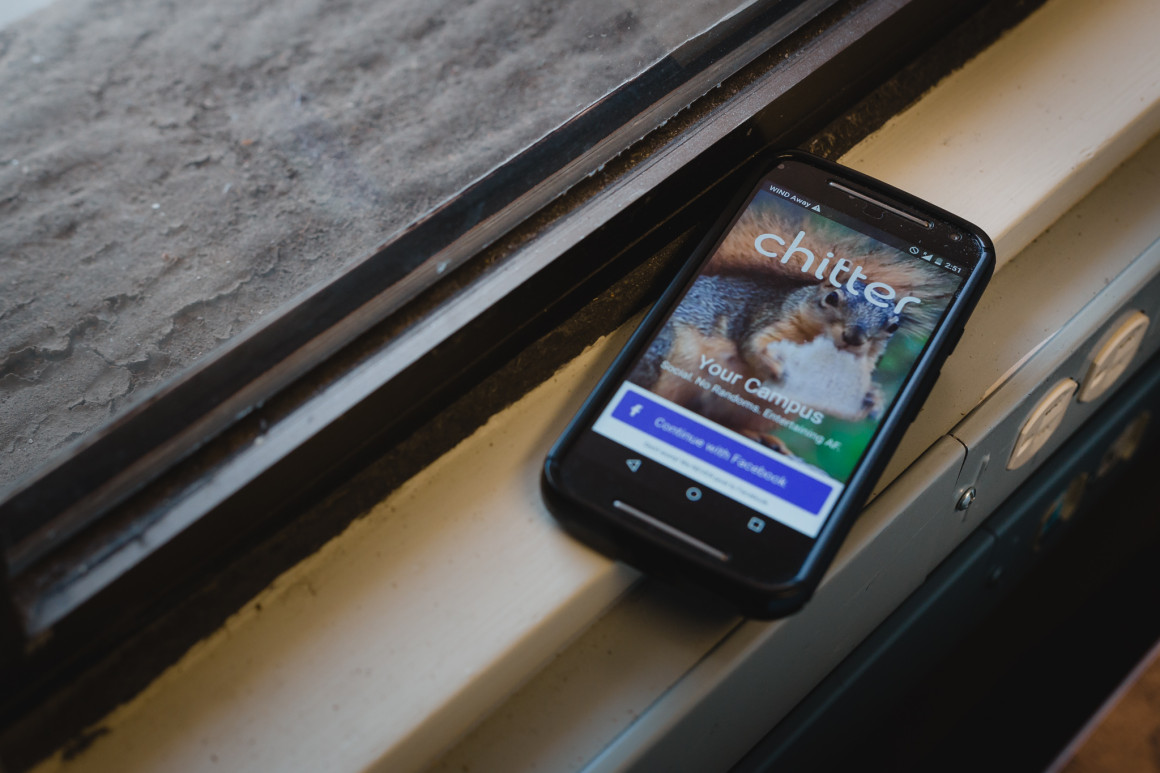
Chitter won’t help you make friends
By Kent Wong, March 22, 2016 —
Chitter is a university-focused social networking app built on ideas used by platforms like Reddit, Twitter and U of C Confessions. But these online communities take more from the user than they offer back.
We don’t need an app to experience the “university life.” If anything, Chitter detracts from it. Staring at a screen and reading posts by anonymous students isn’t socializing, and apps like Chitter are a potential source of toxicity in your life.
Chitter was developed by a few students at the University of Alberta with a simple premise — a student can write what’s on their mind and the post will show up anonymously, though anyone posting a reply will have their name shown. These posts and comments can then be upvoted or downvoted by users, with medals awarded to popular posters.
The moderators also have a special “Chitter after Dark” area that opens on the weekends where they encourage suggestive photos and “naughty” material. You can also like another user’s profile anonymously, but they won’t know until they blindly like you back. A private DM channel is then created between you two, like a worse Tinder. The app is currently only available to major western Canadian universities, and you need a school email to sign up.
But what is this app’s value to users — especially to university students? The app doesn’t really offer any promises, but it does brand itself as some part of the puzzle of “university and campus life.” Admittedly, for a commuter school like U of C, the app allowed me some insight to other students’ lives. But if I really wanted this insight, I could have just gone to the arts lounge and said hi to another human being instead of some text box on my phone. Of course that’s unlikely to happen. So I suppose Chitter could have some use in today’s society of disconnected online anonymity. But this doesn’t make it healthy.
How can Chitter be toxic for you? Studies conducted by the University of Michigan and Vermont have concluded that both Twitter and Facebook use has a direct correlation with unhappiness. The deeper the use, the more unhappy the user became over time. Chitter has similarities to Twitter and Facebook, but it’s even more artificial since it’s just a myriad of random strangers.
As a result of that anonymity, targeted bullying, sexual harassment, heated debate and general shitposts make up a good portion of the experience. It’s little more than another platform you have to worry about checking every few minutes.
So why should you even consider going on it? There isn’t much warranting its use. Some users have found friends and meet up in the atrium to hang out. But you don’t need Chitter to do that.
If anything, the average user just gets to read some funny posts — if they’re lucky. If they’re not, they could be a victim of abuse and harassment. It’s a common sight — some anonymous user will target a popular “chitter celebrity” and post something inflammatory in an attempt to bait angry responses, adding another level of potential harm to the app.
I’ve seen some users genuinely distressed on the Chitter, especially popular posters singled out for attack. But what worries me is that anyone would invest enough time in such a community to be that well known in the first place. What was the return on this investment? Harassment? Medals for your clever shit posts? All this time could have been better spent socializing or studying — but instead it’s just senseless toxicity by anonymous students.
Have something on your mind or a concern? Talk to a friend instead of Chitter. You might not get any medals, but you might get a response from someone that cares.
